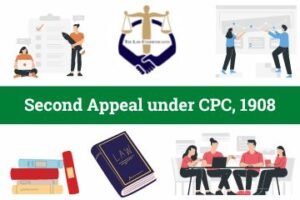Wrongful Convictions: Punishing the Innocent
Written By: Shreem Thite
The conviction of a person who is factually innocent is known as wrongful conviction. Wrongful convictions include both responsibility and procedural flaws that had a significant impact on the initial conviction. While an individual may be released and determined not to be legally accountable, he or she may still suffer consequences as a result of the charges. Such convictions are referred to as a “miscarriage of justice,” perhaps the word involves considerably more than just a wrongful conviction, such as the lack of a fair trial and the introduction of unfairly prejudiced evidence.
A Global perspective on Wrongful Conviction
Wrongful conviction is a human rights violation. This conception has been enumerated in the year 1945 in the Universal Declaration of Human Rights. The United Nations Human Rights Committee has also stated that states must establish appropriate legislation to ensure that victims of wrongful convictions are compensated and that the reimbursement is provided within a fair time limit. Furthermore, the International Covenant on Civil and Political Rights, signed and accepted by the entire community in 1966, was a ground-breaking proclamation aimed at preventing miscarriages of justice. The ICCPR requires the state to prevent cases of erroneous conviction resulting in a miscarriage of justice. The State is required to compensate the victim of a wrongful conviction under Article 14(6) of the ICCPR if the conviction was final and was later reversed or pardoned on the grounds that he was innocent.
Many states have enacted their own legislation in accordance with the aforementioned standards. The Criminal Justice Act of 1988 was implemented in the United Kingdom. The Secretary of State is required to give compensation to a person who has been punished as a result of a wrongful conviction under sections 133, 133A, and 133B of the Act, subject to certain criteria. A comparable clause exists in the German Constitution of 1949, which is included in Article 34. The United States, which is recognized as a defender of human rights, has established dual government liability through state and federal statutes.
Wrongful Convictions in India
In India, the concept of wrongful convictions is not recent. It has been going on for a long time. In India, there is no compensation plan or legal framework in place that permits the government to be held accountable for its mistakes. There are numerous examples that have been decided by our country’s various courts that demonstrate this. In recent years, the number of wrongful convictions in the United States has gradually increased.
Rudul Shah v. State of Bihar 1983 SCC (4) 141
The Supreme Court faced difficulty for the first time in 1983, deciding whether or not to grant compensation to a falsely convicted person whose fundamental rights had been violated. The petitioner was wrongly convicted for “14 years” and filed a Habeas Corpus petition with the Supreme Court, seeking compensation and other reliefs under Article 32 of the Constitution. If the Court ruled the petitioner’s acquittal without any compensation, the Court believed that Article 21, would be nullified.
Ram Lakhan Singh v State of UP (2015 16 SCC 715)
While hearing a writ petition, in this case, the Court ordered a compensation of Rs.10 lakhs to the petitioner, who had fought a ten-year legal fight and spent 11 days in jail.
Mohd. Jalees Ansari & Ors. v Central Bureau of Investigation (AIR 2016 SC 2461)
Nasrudin (then 19 years old) was arrested by the authorities in October 1993 for a bombing at a school. On February 28, 2005, he was ‘sentenced to life by the Terrorist and Disruptive Act (TADA) court in Ajmer, only to be exonerated by the Supreme Court on May 11, 2016, on the grounds that his confession obtained in police custody was inadmissible. Due to the combined incompetence of the judiciary and the authorities, the man lost “23 years” of his life. He received no remuneration from the court. He became impoverished, and his financial situation made it impossible for him to file a claim for compensation.
Babloo Chauhan @ Dabloo v. State Government of NCT of Delhi (247 2018 DLT 31)
The Delhi High Court emphasized the importance of a comprehensive legal framework to compensate falsely convicted people. The Court, in this case, stated that:
“There is at present in our country no statutory or legal scheme for compensating those who are wrongfully incarcerated. The instances of those being acquitted by the High Court or the Supreme Court after many years of imprisonment are not infrequent. They are left to their devices without any hope of reintegration into society or rehabilitation since the best years of their life have been spent behind bars, invisible behind the high prison walls. There is an urgent need, therefore, for a legal (preferably legislative) framework for providing relief and rehabilitation to victims of wrongful prosecution and incarceration.”
The fact that Rudel Shah was awarded Rs. 30,000 in compensation for being imprisoned for 14 years and Ram Lakhan Singh was awarded Rs. 10 lakhs in compensation for being held captive for 11 days reflects the lack of consistency in the judiciary’s approach to these cases, emphasizing the need for a “uniform compensation legislative framework.”
The Indian legal system has shown a lack of accountability by refusing to compensate persons imprisoned on false charges. Their chaotic position has been exacerbated by the judiciary’s non-uniform response.
Conclusion
Victims who have been wrongfully accused have their fundamental rights violated. The victims’ unfortunate situation following their conviction exemplifies the state’s imprudent reaction to these victims. The victims rely on the mercy of the state after they are released from prison. The compensation scheme is inconsistent, capricious, and arbitrary because it differs in each case. Inexplicably, simply paying the compensation is only a minor approach toward restoring the victims’ status quo. Furthermore, the victims’ precarious situation is exacerbated by procedural difficulties. This is an indication of a miscarriage of justice, and legislation is required to ensure that people are not wrongfully convicted and punished and that if they are, proper remedies are available.

About the Author
Shreem Thite
4th year
B.A.LLB (Hons.)
Hidayatullah National Law University, Raipur, C.G.
Previous Blogs
Treatment Of Wastewater From Agricultural In India
Validity of Whatsapp Messages in The Court of Law as evidence.
Pardoning Powers Of President And Governor Under Indian Constitution




